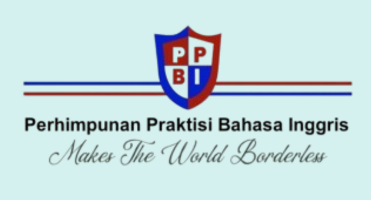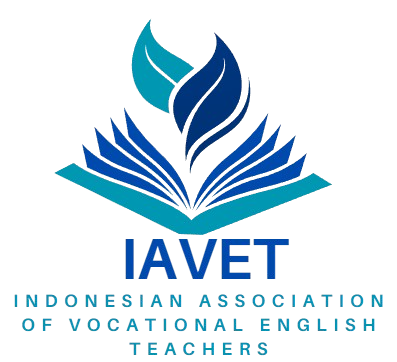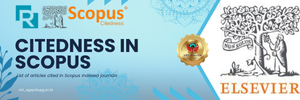Examining University Students' Business English Writing Performance: Frequent Errors and Pitfalls
DOI:
https://doi.org/10.31963/rial.v2i2.4446Keywords:
Business English, EFL Students, Error Analysis, ESP, Writing SkillAbstract
This study aims to identify the common writing errors made by college students in business English writing and investigate the contributing factors. The study employed a mixed-method approach to comprehensively analyze writing errors in the business English context. The research population comprised college students enrolled in Writing for Business Communication courses at Universitas Sulawesi Barat, with a sample of 100 students majoring in English education. The findings highlighted content errors, organization challenges, vocabulary issues, language use discrepancies, and mechanics errors in their writing. The most common errors encompassed grammatical errors in language use (48%), errors in conveying business messages in content (45%), and document structural errors in organization (38%). Moreover, the study identified several significant factors contributing to these writing errors, including a lack of practice, a limited understanding of business concepts, resource limitations, inadequate feedback, and time constraints. This study underscores the importance of addressing these specific writing challenges in business English education, offering insights for educators to develop targeted strategies and materials. It also contributes to the broader field by highlighting the unique errors within business English writing and emphasizing the need for specialized instruction. Ultimately, this research informs both pedagogical approaches and students' preparation for future careers in the globalized business environment.References
AlAfnan, M. A., Dishari, S., & Siti Fatimah MohdZuki. (2024). Developing Soft Skills in the Artificial Intelligence Era: Communication, Business Writing, and Composition Skills. Journal of Artificial Intelligence and Technology. https://doi.org/10.37965/jait.2024.0496
Almusharraf, N., & Alotaibi, H. (2023). An error-analysis study from an EFL writing context: Human and Automated Essay Scoring Approaches. Technology, Knowledge and Learning, 28(3), 1015–1031. https://doi.org/10.1007/s10758-022-09592-z
Antonio, J., & Briones, M. (2022). Linguistic Errors and Skill-Competency of Students in Writing Business Letters. Journal of English Education and Linguistics, 3(1), 64–84. https://doi.org/10.56874/jeel.v3i1.810
Bader, M., Burner, T., Hoem Iversen, S., & Varga, Z. (2019). Student perspectives on formative feedback as part of writing portfolios. Assessment & Evaluation in Higher Education, 44(7), 1017–1028. https://doi.org/10.1080/02602938.2018.1564811
Bazerman, C. (2020). What written knowledge does: Three examples of academic discourse. In Landmark essays on writing across the curriculum (pp. 159–188). Routledge.
Cahya, U. D., Palangan, B. I., S, R. E., Wulansari, Febrianto, A. R., Talenta, P. I., Gaspersz, S., Isma, A., Sari, N., Pavita, M. D. A., & Lestari, I. W. (2023). English for Fun (1st ed.). Yayasan Kita Menulis.
Cendra, A. N., & Sulindra, E. (2022). Navigating Teaching during Pandemic: The Use of Discussion Forum in Business English Writing Class. English Language Teaching and Research Journal, 6(1), 36–51. https://doi.org/10.37147/eltr.v6i1.127
Chan, S. H. (2006). Communication Skills for Effective Management. Asian Business & Management, 5(4), 559–561. https://doi.org/10.1057/palgrave.abm.9200203
Chibi, M. (2018). The Role of the ESP Practitioner as Business English Teacher. International Journal of English Literature and Social Sciences, 3(2), 197–203. https://doi.org/10.22161/ijels.3.2.12
Clarke, V., & Braun, V. (2017). Thematic analysis. The Journal of Positive Psychology, 12(3), 297–298.
Cornelissen, J. (2020). Corporate Communication: A Guide to Theory and Practice. SAGE Publications Ltd.
Dobrić, N., Sigott, G., Ilc, G., Lazović, V., Cesnik, H., & Stopar, A. (2021). Errors as indicators of writing task difficulty at the Slovene general matura in English. International Journal of Applied Linguistics (United Kingdom), 31(3), 475–491. https://doi.org/10.1111/ijal.12345
Hargie, O., Dickson, D., & Tourish, D. (2004). Communication Skills for Effective Management. PALGRAVE MACMILLAN.
Isma, A. (2018). Applying Picture Word Inductive Model (PWIM) on Students’ Writing Descriptive Text. JEC : Journal of Education and Counseling, 1(1), 1–12.
Isma, A., & Baharuddin, A. F. (2022). Exploring Students’ Willingness to Communicate (WTC) in Indonesian EFL Classroom. Proceedings of English Linguistics and Literature, Vol. 3, pp. 78–85. Universitas Negeri Semarang.
Isma, A., Basri, M., Abduh, A., Putri, A. M. J., & Hustiana, H. (2024). Empowering E-Learning for English Literacy Development: Insights from Lecturers. JETAL: Journal of English Teaching and Applied Linguistics, 5(2), 146–153. https://doi.org/10.36655/jetal.v5i2.1495
Isma, A., Hermansyah, S., Ramadhani, Y. R., Lestari, I. W., Evenddy, S. S., Talenta, P. I., Sastri, L., Rasmin, L. O., Febrianto, A. R., & Pavita, M. D. A. (2023). Teaching English to 21st Century Learners (1st ed.). Yayasan Kita Menulis.
Isma, A., Lestari, I. W., Rohimajaya, N. A., Hardiyanto, A., Susanti, E., Meisarah, F., Novia, S., Kuning, D. S., Hamer, W., & Rasmin, L. O. (2024). Digital Tools for English Language Learning: A Comprehensive Guide for EFL Educators (1st ed.). Yayasan Kita Menulis.
Isma, A., Rasmin, L. O., Hutauruk, T. L., Lestari, I. W., Yuzar, E., Evenddy, S. S., Hamer, W., Wandira, B., Achmad, S., & Rahman, F. (2023). ESP Pedagogy: Designing Effective English for Specific Purposes Courses (1st ed.). Yayasan Kita Menulis.
Isma, A., Rasmin, L. O., & Samsudin, S. (2023). Decoding the Challenges: A Study of English Writing Errors Among EFL Students. GLENS: Global English Insights Journal, 1(1), 1–9. https://doi.org/10.61220/glens.v1i1.2023a1
Jawad, A. S. H. Al, & Mansour, A. A. (2021). An Exploration of Grammatical Errors in Written English of Libyan EFL Students with Special Reference to Arabic as their First-Language. Journal of World Englishes and Educational Practices (JWEEP), 3(3), 7–25. https://doi.org/10.32996/jweep
Kherrous, S., & Belmekki, A. (2021). Investigating the need of Algerian Bankers to develop Specialized Business Vocabulary: The Case of Algeria Gulf Bank Employees in Tlemcen. ESP World, 23(62), 1–14.
Klimova, I. I., Klimova, G. V., & Dubinka, S. A. (2019). Students’ communicative competence in the context of intercultural business communication. XLinguae, 12(1), 207–218. https://doi.org/10.18355/XL.2019.12.01.16
Lin, C. J., Hwang, G. J., Fu, Q. K., & Chen, J. F. (2018). A flipped contextual game-based learning approach to enhancing EFL students’ English business writing performance and reflective behaviors. Educational Technology and Society, 21(3), 117–131.
Liu, X., Samah, N. A., & Salleh, S. M. (2022). The Impact of Using a Mobile App on Improving Students’ Creative Thinking in Business English Writing with Self-regulated Learning. International Journal of Interactive Mobile Technologies, 16(15), 46–61. https://doi.org/10.3991/ijim.v16i15.31477
Mustafa, M., Syihabuddin, & Syahriani, I. (2023). Genre-Based SFL Analysis of Academic Writing English: Investigating Linguistic Features and Genre Conventions in Students Essays. ELITE: English and Literature Journal, 10(1), 1–14. https://doi.org/10.24252/elite. v10i1.36563
Ngarsou, V. (2022). Analysis of EFL students’ Errors in Writing at the Higher Teachers’ Training College of N’Djamena. English Studies at NBU, 8(2), 289–300. https://doi.org/10.33919/esnbu.22.2.8
Nickerson, C. (2022). Teaching Business English in the UAE to Undergraduate Learners: A Learner-Centred Approach BT - English Language and General Studies Education in the United Arab Emirates: Theoretical, Empirical and Practical Perspectives (C. Coombe, L. Hiasat, & G. Daleure (eds.); pp. 31–43). Springer Nature Singapore. https://doi.org/10.1007/978-981-16-8888-1_3
Nickerson, C., & Planken, B. (2016). Introducing Business English. Routledge.
Omar, F. R., & Barzani, S. H. H. (2022). English Writing Errors of Kurdish EFL Undergraduates: An Error Analysis. International Journal of Social Sciences & Educational Studies, 9(2), 256–266. https://doi.org/10.23918/ijsses.v9i2p256
Özkayran, A., & Yılmaz, E. (2020). Analysis of Higher Education Students’ Errors in English Writing Tasks. Advances in Language and Literary Studies, 11(2), 48. https://doi.org/10.7575/aiac.alls.v.11n.2p.48
Para, I. (2015). The Changing Role of the Business English Teacher in the Business English Class. Scientific Bulletin of the Politehnica University of Timişoara Transactions on Modern Languages, 14(1), 61–70. https://doi.org/10.59168/ldcm8180
Ramadhani, Y. R., Siregar, A. R. S., & Hasibuan, A. (2020). The Effect of Project Based Learning on Writing Business Letters. Proceedings of the Third Workshop on Multidisciplinary and Its Applications, WMA-3 2019. https://doi.org/10.4108/eai.11-12-2019.2290848
Samuels, J. A., Huston, J. M., & Pasewark, W. R. (2023). Automated Learning Strategy to Reinforce Business Writing Mechanics for Accounting Students. Issues in Accounting Education, 38(2), 21–34. https://doi.org/10.2308/ISSUES-2021-128
Sun, B., & Fan, T. (2022). The effects of an AWE-aided assessment approach on business English writing performance and writing anxiety: A contextual consideration. Studies in Educational Evaluation, 72, 101123. https://doi.org/https://doi.org/10.1016/j.stueduc.2021.101123
Tenieshvili, A. (2023). Analysis of Discourse Organization and Metadiscourse Devices in Georgian Business Correspondence: Specifics of Georgian Business Letters and Emails. Language Education and Technology (LET Journal), 3(1), 73–88. https://langedutech.com/letjournal/index.php/let/article/view/45
Tsai, Y.-R. (2021). Exploring the effects of corpus-based business English writing instruction on EFL learners’ writing proficiency and perception. Journal of Computing in Higher Education, 33(2), 475–498. https://doi.org/10.1007/s12528-021-09272-4
Uccelli, P., Dobbs, C. L., & Scott, J. (2012). Mastering Academic Language: Organization and Stance in the Persuasive Writing of High School Students. Written Communication, 30(1), 36–62. https://doi.org/10.1177/0741088312469013
Wang, L., & Fan, J. (2020). Assessing Business English writing: The development and validation of a proficiency scale. Assessing Writing, 46, 100490. https://doi.org/https://doi.org/10.1016/j.asw.2020.100490
Williams, J. A. S., Schutts, J., Gallamore, K., & Amaral, N. (2018). Assessment of Memorandum Writing in a Quantitative Business Context. Business and Professional Communication Quarterly, 82(1), 38–52. https://doi.org/10.1177/2329490618798606
Yang, X. (2019). A review of negative language transfer regarding the errors in english writing in chinese colleges. Journal of Language Teaching and Research, 10(3), 603–609. https://doi.org/10.17507/jltr.1003.24
Yingying, J. (2020). Research on Language Characteristics of Business Letter Writing. Studies in Literature and Language, 20(3), 128. https://doi.org/10.3968/11717
Zhang, Z. (2013). Business English students learning to write for international business: What do international business practitioners have to say about their texts? English for Specific Purposes, 32(3), 144–156. https://doi.org/https://doi.org/10.1016/j.esp.2013.01.002
Zhonggen, Y., & Guifang, W. (2016). Academic Achievements and Satisfaction of the Clicker-Aided Flipped Business English Writing Class. Journal of Educational Technology & Society, 19(2), 298–312. http://www.jstor.org/stable/jeductechsoci.19.2.298
Zinkevich, N. A., & Ledeneva, T. V. (2021). Using Grammarly to Enhance Students’ Academic Writing Skills. Professional Discourse & Communication, 3(4), 51–63. https://doi.org/10.24833/2687-0126-2021-3-4-51-63
Downloads
Published
Issue
Section
License
Copyright (c) 2024 Research and Innovation in Applied Linguistics [RIAL]

This work is licensed under a Creative Commons Attribution-ShareAlike 4.0 International License.
Authors who publish with this journal agree to the following terms:
Authors who submit article to this journal, agree to grant the copyright to Research and Innovation in Applied Linguistics (RIAL) under a Creative Commons Attribution License: Creative Commons Attribution-ShareAlike 4.0 International License.
![]()
For collaborative works, authors should ensure that they have secured the necessary permissions from co-authors to submit the manuscript and grant the rights outlined in this policy.
Archiving and Access:
RIAL upholds an open access policy, ensuring that articles are freely accessible to a global audience upon publication. Authors' work will be archived electronically, facilitating its long-term availability and visibility.









.png)


